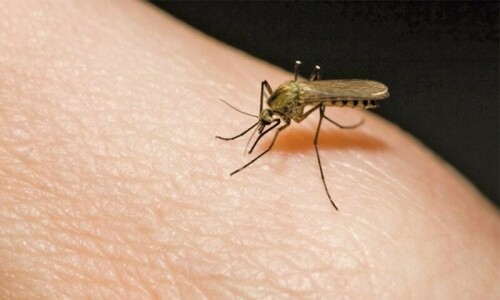KARACHI, Feb 15: Rejecting official claims that migratory birds are responsible for the spread of the H5N1 strain of avian influenza (AI), the World Wide Fund for Nature (WWF) has warned of serious repercussions against wild bird populations and their habitats if people at the helm of affairs continued to issue statements that have no scientific grounds.
In a statement, the WWF said: “Though there is some evidence to back the case that migratory wild birds can spread the H5N1 virus, they are not the main source of the virus, nor are they solely responsible for the spread of H5N1. No fully documented healthy migratory wild birds have tested positive for H5N1. In fact, it seems that with the degradation and destruction of lakes and wetlands, migratory birds are forced to feed and live in areas populated by domestic poultry (and humans), putting the wild birds at risk of infection.”
Highlighting some scientific facts, the WWF said none of the samples collected by the Food and Agriculture Organisation (FAO) from between 300,000 to 350,000 wild birds across the world were found positive for H5N1. Likewise, a sampling of 5,000 water-birds after an outbreak in Nigeria during 2006 found no traces of the virus.
After a comprehensive critical review of recent scientific literature, it has been concluded that the poultry trade — rather than bird migration — is the main mechanism of global dispersal of the virus, it said.
The information collected by global organisations also shows that the widespread illegal trade in caged birds transports H5N1-infected birds over large distances. The most likely source of infection in captive birds is at live animal ‘wet’ markets in Asia, where domestic and captured wild birds are kept in close proximity, posing a high risk of cross-contamination.
“Avian influenza viruses are readily transmitted from farm to farm by the movement of live birds, people (especially when shoes and other clothing is contaminated), and contaminated vehicles, equipment, feed, and cages. Highly pathogenic viruses can survive for long periods in the environment, especially when temperatures are low,” it notes.
To counter false information on bird flu, the organisation has urged the media to play a responsible role and has suggested some measures. This includes the involvement of academia with the government departments concerned to test for the H5N1 strain in wild birds and caged birds traded in the major cities of Pakistan; establishment of a mechanism to monitor any suspicious mortality of bird species in the wild; sharing of information on AI between the private and public sectors and humane culling of infected birds and their proper disposal.
It also called for strict hygiene and bio-security measures at poultry farms, besides the vaccination of birds housed in zoos and putting a tracking number on all poultry and its products so that the source of infection can be investigated.
The WWF advises that wild birds and their habitats should be left undisturbed so that they do not have to seek refuge near human settlements, therefore not coming into contact with the virus.














































Dear visitor, the comments section is undergoing an overhaul and will return soon.